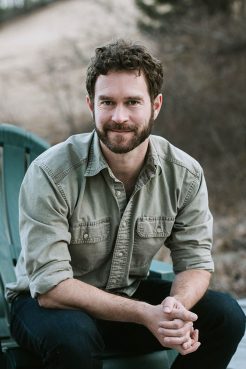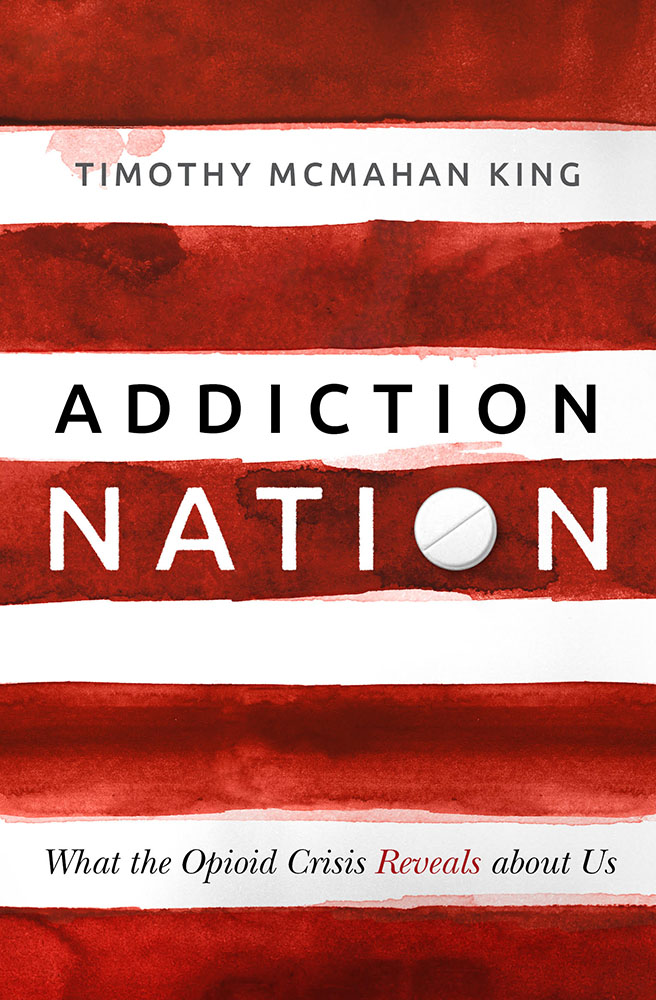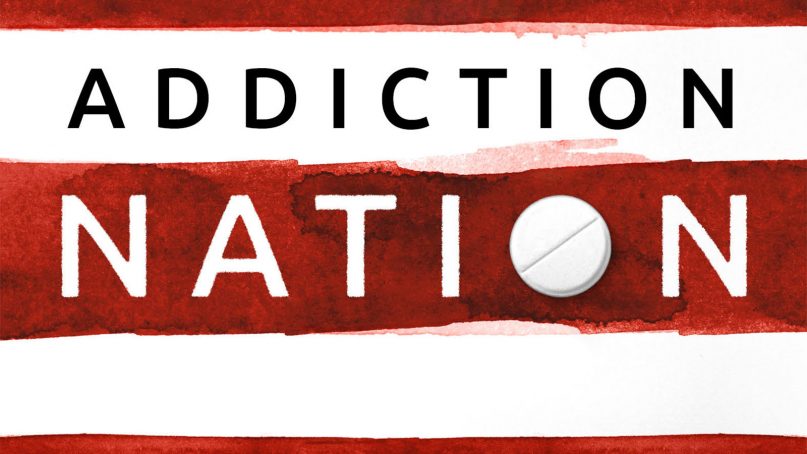(RNS) — Timothy McMahan King’s opioid addiction began in the hospital.
When a routine outpatient procedure went wrong, threatening his life and causing him severe pain, doctors put King on heavy doses of painkillers, including fentanyl.
At the time, the painkillers were medically appropriate, he said.
“But over the course of being in the hospital for months, being home recovering, what started as an important medicine eventually turned into dependence and then into addiction,” he said.
King recognizes he was lucky. Doctors quickly caught and addressed his addiction before things went terribly wrong.
But many others aren’t as fortunate. For some, medical treatment with painkillers can turn into a full-blown addiction that destroys their lives.
The U.S. Department of Health and Human Services declared the opioid crisis a public health emergency in 2017. And a recent study by the Pew Research Center found more Americans agree drug addiction is a major problem than any other issue.
That’s why King, a media consultant and former chief strategy officer for Sojourners magazine, felt it was important to share his story and what it had taught him about addiction.
In “Addiction Nation: What the Opioid Crisis Reveals About Us,” published last month, he combines his story with Christian theology and scientific studies of addiction.
King talked to Religion News Service about the opioid crisis and what people of faith can do to respond.
This interview has been edited for length and clarity.
When did you know you were addicted?
In my book, I describe sitting down with my doctor and having him telling me I was addicted.
At first, I was defensive. I’d already had three separate doctors accuse me of faking pain in order to get more pain medicine. Each time, they had failed to diagnose a medical complication that threatened my life. For them, the easiest thing to do was to blame me for faking pain.

Author Timothy McMahan King. Courtesy photo
Unlike other times, this doctor didn’t judge me, wasn’t angry at me, didn’t accuse me of anything. The first thing he said was, “You didn’t do anything wrong.” And then he told me that he believed that I was still in pain.
One of the things that’s misunderstood about addiction is addiction is always rooted in some kind of pain, whether that is on the surface or hidden underneath.
And when an addict is confronted without understanding the underlying pain, all that results in is defensiveness. The person has figured out the drug is serving some kind of positive purpose in their life; otherwise, they wouldn’t have gotten addicted in the first place.
I keep going back to that moment with my doctor because he didn’t focus on controlling my behavior. Instead, he focused on drawing out of me what I wanted a healthy life to look like. That was the emphasis that helped me start taking steps towards recovery.
You write at the start of the book, “I’m writing this book because if everyone had what I had, the opioid crisis would not be what it is today.” What made your case different?
My story is one of early detection, where my doctor saw the early signs of addiction. I had always thought of addiction — whether I admitted it or not — as something that only happens to bad people. They are weak-willed or immoral, and that’s the only way things can get so bad.
My doctor stepping in at that time and disabusing me of that notion actually gave me the freedom to focus on the positive. That is a stronger motivator than any kind of punishment, any kind of shaming.
Addiction, by its very nature, is self-harming behavior. Harming people who are already engaged in self-harm doesn’t accomplish anything — in fact, it often makes things worse.
I wanted to tell my story exactly because it didn’t look like the stereotypical stories people had heard. It wasn’t because I was smarter or had a greater strength of will. It was because of what had been provided for me. That included a doctor who understood to show grace and not focus on shame. I had a family who was there to support me and focus on what a healthy life looked like, not controlling my behavior. And that looked like having an employer that kept my job for me, having health insurance so I kept making a paycheck. I didn’t need to worry about medical bills. I had a goal and something that I wanted to achieve afterward.
The more we can create a context for people to recover, that’s not just good for those struggling with addiction, that’s good for everyone.
How did this experience give you a window into the larger opioid crisis?

“Addiction Nation: What the Opioid Crisis Reveals About Us” by Timothy McMahan King. Courtesy image
This book uses the opioid crisis as a window to look at broader issues of addiction. At the same time, drug overdoses claimed over 70,000 lives last year, alcohol-related deaths claimed over 88,000 lives; cigarette deaths, even more.
I just think our society as a whole is struggling with addiction in a variety of different manifestations. Drugs and alcohol just happen to be some of the most prevalent, but it can happen with our technology, it can happen to food, it can happen with shopping, it can happen with any of these other behaviors.
It’s not fundamentally a pursuit of something bad as it is a pursuit of some sort of moral good that goes wrong. Addiction is always in pursuit of some sort of connection, some sort of transcendence, some sort of ease of pain.
Addictions aren’t dangerous because they always lie; they’re dangerous because they only tell part of the truth.
At a time when people are feeling more disconnected than ever, they’re feeling more lonely and we have increasing suicide, increasing anxiety, increasing mental illness. It’s not surprising that millions of people all at once are turning to a chemical that mimics love.
What have we learned about addiction since the war on drugs was declared in the 1970s? What do we still get wrong about it?
One of the biggest advancements has been understanding exactly how much addiction can change our brain functioning.
Modern science has shown us that addiction can change the way our brain functions, and it damages most the parts of our brain that could help us overcome the addiction the most.
That’s why things like access to medically assisted treatment are so important. We now have drugs that can help people cope while their brain can repair itself and they can live into recovery. Oftentimes people dismiss it as a crutch, and how I respond to that is: If you’ve got a broken foot, you’d be foolish not to use a crutch.
What else do we get wrong about addiction?
We fail to realize how much social and cultural factors affect addiction.
The “moral model,” thinking about addiction as fundamentally a moral failing, was discredited by experts in the 1980s. But it’s our primary cultural way of viewing it.
To say that the moral model is wrong isn’t to say there’s never moral issues involved in addiction. Instead, it’s to say the primary moral issues involved are actually how we respond as a society to those struggling with addiction.
You write that the opioid crisis is about “failures of religion and of an anemic spirituality that we have not wanted to face.” How so?
I hope more churches and spiritual communities can embrace a theology that’s big enough to hold our imperfections. I think many churches, even if they host an AA meeting on Wednesday night, think of addiction as something that is a ministry out of their church and not happening in their church.
One of my hopes is that there are Christian leaders or pastors or priests out there who understand that addiction is happening in their congregations and they have a way to speak to it at an early stage. They have the opportunity to encourage people to look at their lives before things fall apart.
What can people of faith do to respond to this crisis?
The primary piece that I’m focused on is changing how people talk about it.
Turns out that my doctor had been trained in what’s called motivational interviewing. That was not his specialty — he was a pancreatic specialist — but he learned the basics, and just those fundamental principles of knowing how to talk to someone who’s beginning to see their own addiction, I think could be revolutionary. Not every pastor needs to be an addiction counselor, but if they can understand some of the basics of how to have that first conversation, I think churches could be epicenters for people moving into recovery and helping that start earlier on a journey of addiction rather than later.
When churches recognize that we are all vulnerable to addiction, we can see that we have created a travesty of justice in criminalizing so many people with addictions and locking them up, and it’s only made the problem worse. I hope that there’s a lot of people who are able to see how addiction has played out in their life and their community and then look beyond that and see how we’ve been mistreating black and brown people for generations.





